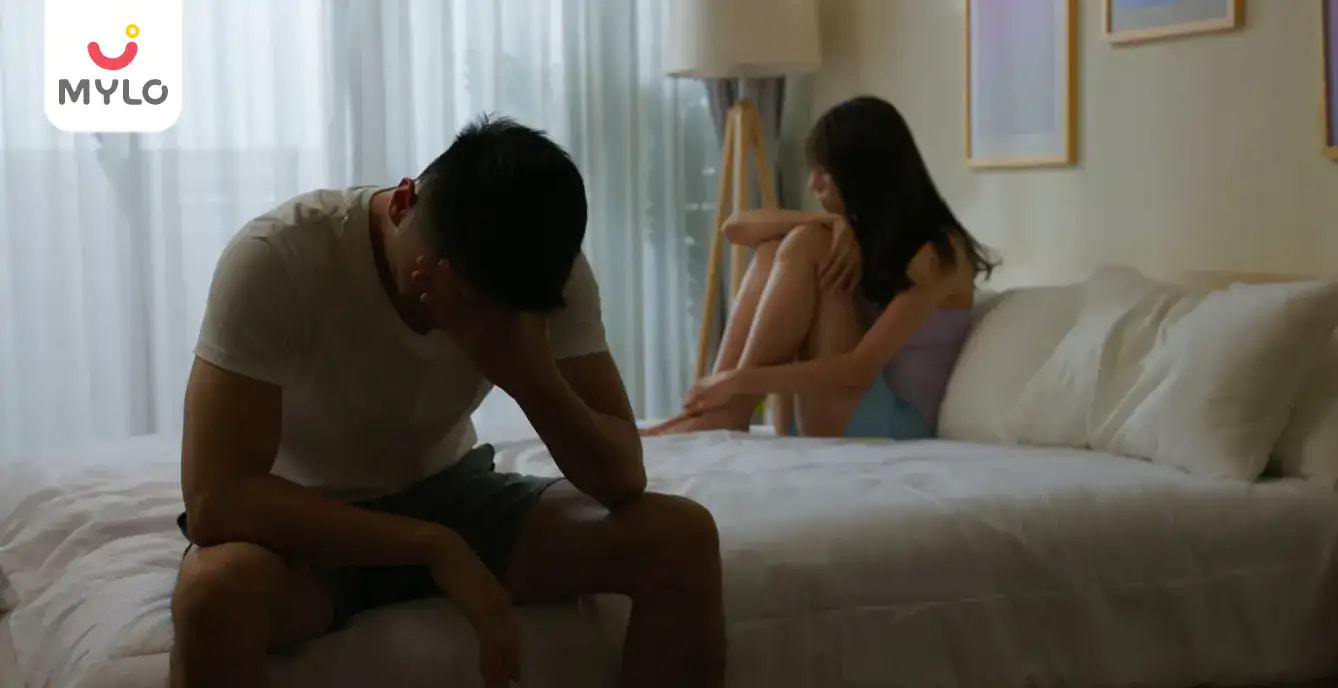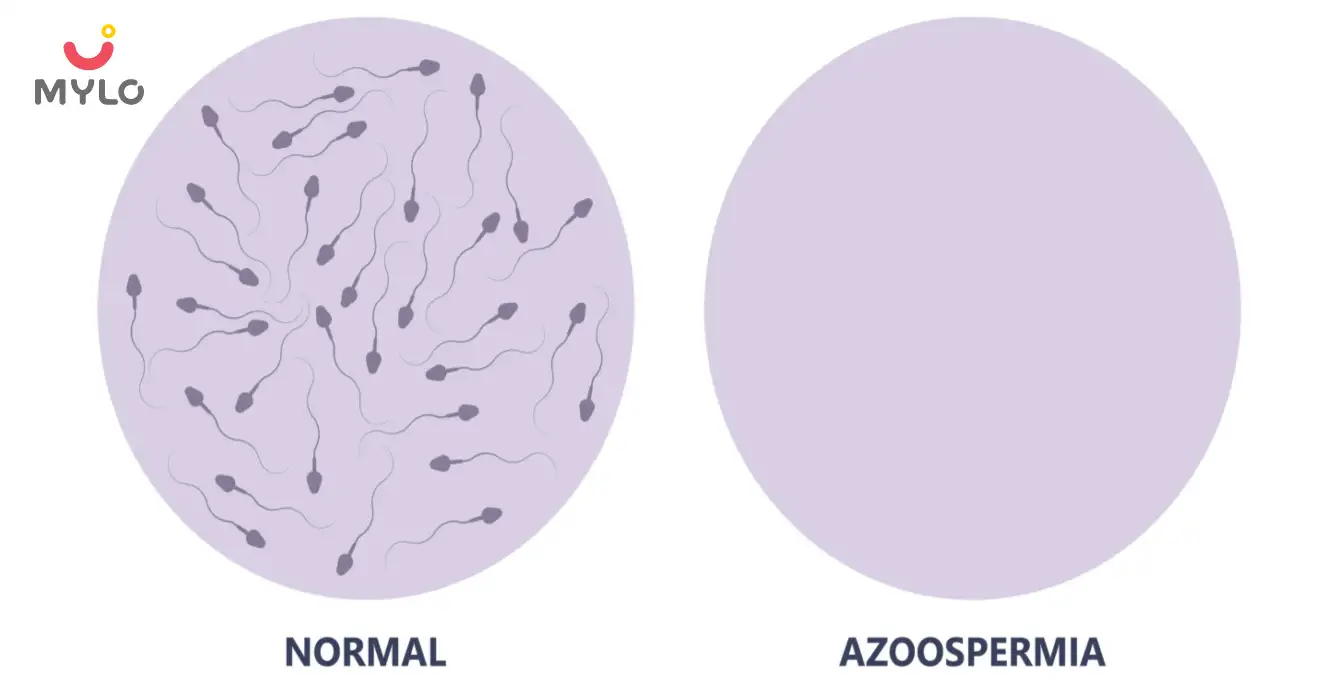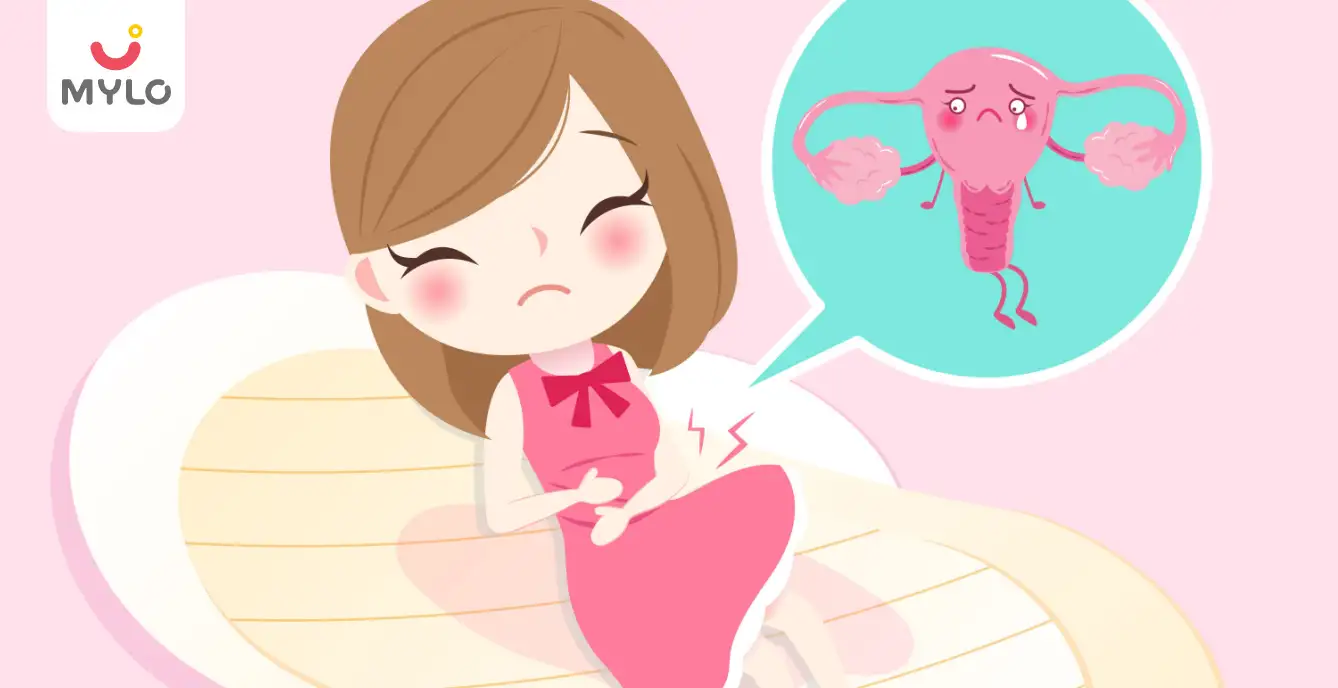Home

Sex Life

Loss of Libido: Causes, Symptoms, and Treatment
In this Article

Sex Life
Loss of Libido: Causes, Symptoms, and Treatment
Updated on 20 June 2023
At some point in their lives, up to 1 in 5 men and even more women experience loss of libido (sex drive), which is a typical issue. In this article, we will discuss what is loss of libido, its causes, symptoms, risks and side effects and how to manage this condition.
What is Low Libido?
A decreased libido means a lack of sexual drive. It can be due to various physical or psychological conditions. These include hormonal imbalances, depression, relationship problems, stress, certain medications, chronic illnesses, and other factors. It is important to consult a healthcare professional to understand what is the cause of it.
Causes of Low Libido:
Decreased libido can be due to both personal and work stress. Life-altering events like breastfeeding, pregnancy, or childbirth can also be causes.It can be frustrating for both participants in a relationship. An unexpected loss of libido can point to an underlying health or lifestyle issue.
Here are a few reasons for low libido:
- Hormonal imbalances, like low levels of testosterone or estrogen
- Chronic illnesses, such as diabetes or heart disease
- Medications (antidepressants, blood pressure medications, etc.)
- Psychological conditions such as depression or anxiety
- Relationship problems
- Stress
- Lack of sleep or poor physical health
- Substance abuse or alcoholism
- Side effects of surgery or radiation therapy
- Fatigue or low energy levels
Symptoms of Loss of Libido
Here are some indications of decreased or lack of sexual desire:
- Lack of sexual thoughts or fantasies
- Difficulty in getting aroused
- Difficulty in achieving an orgasm
- Reduced interest in physical affection
- Body image issues
- Low self-esteem
- Lack of emotional intimacy
- Advancing age
You may also like: Erectile Dysfunction: What Causes It and How to Treat It
Treatments for Lack of Libido
The treatment for lack of libido depends on the cause.
1. Hormonal Therapy:
Hormonal replacement therapy is done based on which hormone is low.
2. Medication:
Certain medications, such as flibanserin, can be taken as per a doctor's prescription. These can help increase the level of sexual desire.
2. Therapy:
Psychotherapy or counselling can help address issues such as low self-esteem, depression, anxiety, or relationship problems.
3. Lifestyle Changes:
Improving sleep and eating habits, exercising, and reducing alcohol and drug consumption can improve sexual function.
4. Sex Therapist:
An expert in sexual health can help better.
5. Herbal Supplements:
Supplements such as honey, ginseng, and maca root, are known to relieve stress and improve sexual drive.
You may like: Orgasm Anxiety Causes, Symptoms & Treatment
Side Effects of Low Libido
This condition can have effects on both the personal and professional lives of an individual.
- Relationship issues.
- Low self-esteem as individuals can feel less attractive.
- Poor body image.
- Reduced sexual pleasure or satisfaction can lead to frustration.
- Stress and anxiety.
- Over a long period of time, it can lead to sexual dysfunction.
Risks of low libido
Low libido can lead to sexual dysfunction over a period of time. Sexual dysfunction means difficulty in experiencing sexual desire, arousal, or satisfaction. This type of dysfunction is of different types and is a complex issue. It could be a combination of different issues.
FAQ's
1. How do I restart my libido?
Depending on the cause, there are various ways in which this can be done. Hormonal therapy, medications, counselling, psychotherapy, communication with the partner, etc, are some ways. It is recommended to meet a healthcare professional or a sex therapist to understand what method will work best for you.
2. Can lost libido be regained?
Yes, in many cases, lost libido can be regained with appropriate treatment. The treatment will depend on the reason for the loss of libido. Addressing the underlying cause can help restore sexual desire.
For example, if the loss of libido is caused by a hormonal imbalance, hormone replacement therapy may be recommended.
3. At what age do you start losing libido?
It's normal for sexual desire to fluctuate throughout life. There is no specific age at which libido begins to decrease. Factors such as hormonal changes, stress, relationship issues, and physical and mental health can affect sexual desire. Also, it is normal for sexual desire to decrease as people age.
4. How can I increase my libido in one day?
There are a number of things that can be done, such as exercise, relaxation techniques, eating well, and using sexual enhancement oil or creams.
5. Which vitamin is responsible for a lack of libido?
Zinc is essential for the production of testosterone, hence a key vitamin for men. Vitamins B and D, iron, magnesium, and folate are also necessary for a healthy libido in males and females. A balanced diet rich in a variety of fruits and vegetables can ensure that essential vitamins and minerals for sexual health and libido are adequate.
Note that excessive amounts of these vitamins and minerals can be harmful.
The loss of libido is the decreased or absent interest in sexual activity. It can be caused by various physical or psychological factors such as hormonal imbalances, depression, relationship problems, stress, certain medications, or chronic illnesses. Consult healthcare providers to determine the underlying cause and receive appropriate treatment.
References:
1. Shigehara K, Kato Y, Iijima M, Kawaguchi S, Nohara T, Izumi K, Kadono Y, Namiki M,.(2021). Risk Factors Affecting Decreased Libido Among Middle-Aged to Elderly Men; Nocturnal Voiding is an Independent Risk Factor of Decreased Libido.
2. Calabrò RS, Cacciola A, Bruschetta D, Milardi D, Quattrini F, Sciarrone F, la Rosa G, Bramanti P, Anastasi G.(2019).Neuroanatomy and function of human sexual behavior



Written by
Roohi Kalra
Get baby's diet chart, and growth tips

Related Articles
Related Questions
Hello frnds..still no pain...doctor said head fix nhi hua hai..bt vagina me pain hai aur back pain bhi... anyone having same issues??

Kon kon c chije aisi hai jo pregnancy mei gas acidity jalan karti hain... Koi btayega plz bcz mujhe aksar khane ke baad hi samagh aata hai ki is chij se gas acidity jalan ho gyi hai. Please share your knowledge

I am 13 week pregnancy. Anyone having Storione-xt tablet. It better to have morning or night ???

Hlo to be moms....i hv a query...in my 9.5 wk i feel body joint pain like in ankle, knee, wrist, shoulder, toes....pain intensity is high...i cnt sleep....what should i do pls help....cn i cosult my doc.

Influenza and boostrix injection kisiko laga hai kya 8 month pregnancy me and q lagta hai ye plz reply me

RECENTLY PUBLISHED ARTICLES
our most recent articles

Leisure
Top 10 Romantic Movies to Watch on Netflix in 2023

Top 10 Romantic Shows to Watch on Netflix in 2023

Leisure
Top 10 Thriller Movies to Watch on Netflix in 2023

Leisure
Top 10 Thriller Shows to Watch on Netflix in 2023

Male Infertility
Azoospermia and Male Fertility: What Every Man Should Know

Infertility
Premature Ovarian Failure: How it Affects Female Fertility and What You Can Do About It
- Erectile Dysfunction: What Causes It and How to Treat It
- Positive Signs After Embryo Transfer: What to Look Out For
- Sleeping Position After IVF & Other Precautions That Can Boost Your Chances of Success
- IVF Failure Reasons: Exploring the Challenges Couples Face with Infertility
- Putrajeevak Beej: The Ancient Seed for Modern Health and Fertility
- Shivlingi Beej: The Ultimate Guide to Boosting Your Fertility Naturally
- Milk Thistle in Ayurveda: Unlock The Healing Potential and Health Benefits of This Herb
- Orchidopexy: All You Need to Know About Its Procedure, Risks, and Recovery
- Transvaginal Ultrasound: A Non-Invasive Tool for Early Detection of Reproductive Health Issues
- New Mom Diet Plan – Month 11 Week 42
- Ejaculatory Duct Obstruction: How It Affects Male Fertility and What You Can Do About It
- Testicular Ultrasound: What You Need to Know About the Procedure and Its Benefits
- Symptoms of Low AMH to Watch Out For: A Health Alert for Women Trying to Conceive
- Hysteroscopy: Everything You Need to Know About This Minimally Invasive Procedure


AWARDS AND RECOGNITION

Mylo wins Forbes D2C Disruptor award

Mylo wins The Economic Times Promising Brands 2022
AS SEEN IN
















- Mylo Care: Effective and science-backed personal care and wellness solutions for a joyful you.
- Mylo Baby: Science-backed, gentle and effective personal care & hygiene range for your little one.
- Mylo Community: Trusted and empathetic community of 10mn+ parents and experts.
Product Categories
baby carrier | baby soap | baby wipes | stretch marks cream | baby cream | baby shampoo | baby massage oil | baby hair oil | stretch marks oil | baby body wash | baby powder | baby lotion | diaper rash cream | newborn diapers | teether | baby kajal | baby diapers | cloth diapers |




